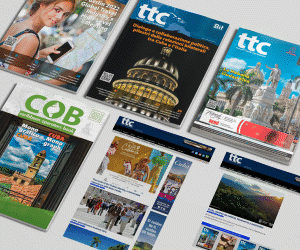By Frank Martin
The long-expected reopening of world tourism has not only been slow to appear but with autumn very near, hopes weakened and postponement is a real possibility while industry still waiting for “good old days” back.
According to experts the heaviest burden against tourist recovery are spreads of new coronavirus strains.
Causes can be diverse but the most common are new variants as the very dangerous Delta.
Experts also pointed the general slowness of the launch of vaccines in so-called developing countries.
The overall situation has forced both major issuers and destinations dependent on the leisure industry to change (or at least adjust) their plans to new circumstances.
A more technical analysis from the United Nation World Tourism Organization estimated that last winter in the Western Hemisphere foundations were not solid enough to launch a grand reopening in the very hot summer that is now drawing to a close.
One example was China, which for too long imposed strict limits as both an outbound and inbound market for tourism.
The gigantic Asian country is a decisive source of world tourism and a master key in the universal reopening process.
A specialized journal as London’s Financial Times recalled that tourism-dependent emerging economies that were already suffer the pandemic with strained finances and mounting debt are still bearing the cost of their second consecutive decline of summer season as the spread of the coronavirus keeps visitors away.
UNWTO data shows that, during the first five months of 2021 global destinations recorded 147 million fewer international arrivals compared to the same period in 2020 and were 460 million lower than in the pre-pandemic year of 2019.
Despite everything reopening nevertheless finds figures to hold on to.
Official UNWTO statistics cited a relatively small rebound last May.
The slight upward trend arose when some destinations began to ease restrictions and consumer confidence increased also slightly, according to the organization’s study.
More and more destinations determined to keep their income as high as possible are also benefiting by national tourists, that is, those who want to stay home during vacations.
Russia and China appealed to that response and got an increase in their customers. Countries such as Brazil, the Philippines, Argentina and Mexico are also benefiting.
“This may not replace foreign currency earnings for those countries, but it keeps hotels and other businesses open and workers employed,” commented a European source.
But the true is that such responses are not considered sufficient.
Generally, analyzes agree that recovery not only must satisfy advanced economies, but has to be deployed in badly needs nations dependent on international tourism.
FM

MORE NEWS











